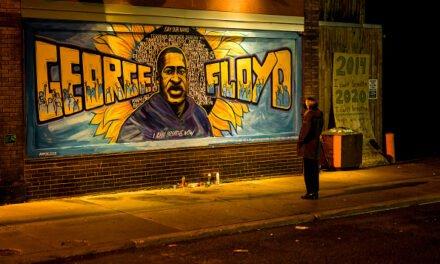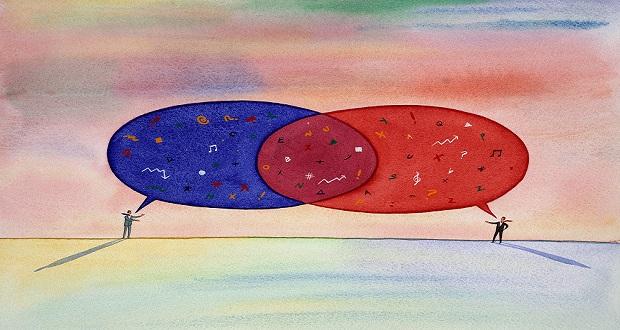
I consider myself pretty introspective and reflective. Those close to me might characterize me as an ‘overthinker.’ I wear it like a badge of honor. 😊 I have found that some of my most impactful learnings about myself (and others) has come as a result of me setting aside time to reflect, process, and just think. Perhaps this has less to do with my profession as a DEI practitioner and more to do with my personal goal of just being a ‘good human.’ We use a quote often in our work that gets to the power of reflecting—as abstract as it may be— “We don’t learn from our experiences. We learn from reflecting on our experiences.” The power in reflection—pausing to deeply understand what messages we’ve learned and internalized, from whence they’ve come and the ways in which it all shows up in how we live in and experience the world—was more than evident in this series.
Over the past six weeks our team has demystified internalized oppression. A dynamic that is often less spoken of (in my experience) in diversity and inclusion work. Certainly, as D and I work has begun to intersect more with social justice and equity work, we’ve began to underscore the role of systems, identity, power, and privilege, particularly the systemic (social outcomes) and interpersonal (our interactions with others) impact. The intrapersonal—how we understand ourselves—is just as critical, if not more, to our work. Our work around internalized oppression is an extension of that.
We define internalized oppression as the acceptance and adoption of negative messages, subordinating norms and biases, and forms of discrimination that have historically been used to marginalize the groups to which we belong. These messages, norms, and biases are typically created by those ‘in power’ and are broadly perpetuated in social systems (criminal justice, education, employment, media, etc.). These messages, norms, and biases are part of the cyclical and generational impact of oppression and can be dangerous—as they can easily ‘go under the radar,’ as ‘how things are’ because ‘that’s just how it’s been.’ Internalized oppression can manifest as an unlikely accomplice to much broader systems of power and privilege and be used to validate them.
These messages, norms, and biases are part of the cyclical and generational impact of oppression and can be dangerous—as they can easily ‘go under the radar,’ as ‘how things are’ because ‘that’s just how it’s been.’ Click To TweetThamara Subramanian reflected on the ways in which internalizing the “Model Minority Myth” not only undermined the experiences and humanity of other racial minorities, but also perpetuated a harmful self-concept. In a powerful reflection, Mary-Frances Winters recounted the pain of internalized oppression and messages she’d learned about race and color in childhood. Leigh Morrison shared more about the ways in which she had to unlearn and relearn gender norms and problematic narratives associated with femininity and womanhood—even as a student at a women’s college. I shared my experience as a Black woman who’s internalized and is constantly reconciling the “Angry Black Woman” narrative that has been used to undermine Black women’s experiences and truths. Finally, Travis Jones shared more on the ways in which the white working class’ internalization of toxic forms of individualism and masculinity has been to their detriment. Over the past six weeks, we’ve learned so much about ourselves and each other.
We must constantly interrogate and be critical of who we are, what we’ve learned, and how it all shows up. Click To TweetIt shouldn’t stop here though. We must constantly interrogate and be critical of who we are, what we’ve learned, and how it all shows up—in our interactions and behaviors; in the policies and practices we ideate and perpetuate; in the norms we accept as fair, true, or right. Consider these questions:
- In what ways has what you’ve learned about yourself impacted who you see as ‘professional’ or not? Worthy of being ‘seen’ or ‘heard’ or not?
- What messages have influenced who you deem ‘leadership material’ or not? Who deserves ‘a seat at the table’ or not?
- What has influenced how you perceive some identity groups over others (including your own)?
- In what ways have you accepted standards or norms that undermine who you are or what makes you unique?
- To what extent have you needed to cover or assimilate—or even expected others to—as a result of cultural norms that suggested ‘who you are’ would not belong?
- In what ways has how you see yourself perpetuated the same systems of oppression and inequity that you seek to disrupt and dismantle?
These are all questions that require reflection if we strive to be our best and most effective selves in the work around equity, justice, and inclusion.
Editor’s note: The Winters Group created a reflection guide on this Inclusion Solution series. The purpose of this guide is to revisit the perspectives shared and to encourage greater self-reflection and critical thinking about the ways this topic influences your world. Also included in this guide are activities and reflection questions for you to engage in as you begin your journey. Download the guide here.



















Excellent piece Brittany!!❤️🙏